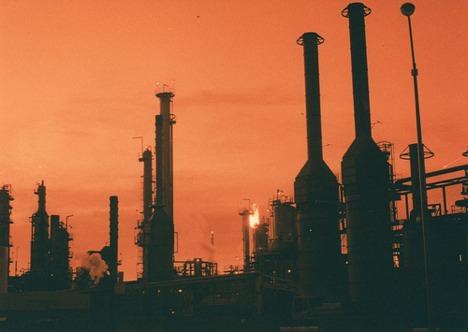Big business still favoured

There is a shocking distinction between the treatment of asylum seekers and the powerful in Irish society. By Siobhan O’Donoghue.
There is big money in oil. Certainly that seems to be the motivation for people like Sean Fitzpatrick, who along with Lar Bradshaw invested €25m in Movido Exploration and Production, an oil company operating in the Niger Delta region of Nigeria.
There is also big trouble associated with oil. The people of the Niger Delta have been struggling with this reality for decades.
“The announcement of an oil discovery in any territory is comparable to the declaration of war against the territory”, says Nnimmo Bassey, Chair of Oilwatch Africa. “Oil destroys the environment, contaminates water and air, and it also contaminates the social structure, destroys forests, destroys life and livelihoods and holds nothing sacred.”
International organisations such as Human Rights Watch have been consistently highlighting the ways the oil industry has been implicit in the abuse of human rights in places like Nigeria. Remember Ken Saro-Wiwa?
Despite the wealth flowing into the nation from oil revenues, many of Nigeria’s socio-economic factors are worse now than they were 30 years ago. According to the World Bank most of Nigeria’s oil wealth gets siphoned off by 1% of the population.
Amnesty International estimates that 70% of the six million people in the Niger River Delta live off less than $1 US per day.
Most oil exploration projects are joint ventures with the Nigerian government. A portion of every dollar that comes out of the ground in the delta goes to the government. In addition the Nigerian government has total control over property rights and they have the authority to seize any property for use by the oil companies.
What happens in countries where there are serious levels of displacement, poverty, ethnic divisions, internal conflict, political unrest and corruption?
Generally people who are endangered, impoverished and the victims of unjust regimes are forced to leave their homes and communities, often moving to other regions within the same country or to neighbouring countries and beyond.
Nigeria's National Commission for Refugees estimated there were 3.2 million internally displaced people in Nigeria between 2003 and 2008. According to UNHCR, no fewer than 12,573 Nigerians applied for asylum in Europe and other developed nations during this time.
Most of those who eventually make it to Europe or other destinations do not receive refugee status. In 2008, asylum recognition rates in developed countries varied greatly, from 62% in Canada to 17% in France to 0.5% in Cyprus.
The success rate in Ireland for Nigerians seeking refugee status was 0.5% in 2008. People in the asylum process can wait for years to have their application decided. In the meantime they are not allowed to work, are given €19.10 per week, are regularly demonised and ridiculed in the media and forced to live in accommodation that is often considered inadequate and sub-standard.
Ireland’s record in the treatment of asylum seekers has been recently called into question by the European Commission who has raised doubts about the standard of protections in place.
Most people would not automatically connect Sean Fitzpatrick and Nigerians living in Ireland.
The former, despite being public enemy number one, remains part of an elite club, cushioned by privilege and status from the full consequences of his actions.
Nigerians on the other hand are regularly exposed to the full range of hostile, often racist, attitudes and treatment. They are also the subject of outrageous myths and misinformation about what they are entitled to receive from the Irish state.
The Irish state actively supported and could be said to have colluded with Sean Fitzpatrick for many years as he played destructive and dangerous gambling games in Anglo Irish Bank. He was subjected to minimal scrutiny despite plenty of evidence to suggest a lot of people in government and banking circles knew what he was doing.
Compare this with the high level of surveillance people from Nigeria are subjected to. All visa applicants aged six years and over residing in Nigeria must provide fingerprints when entering Ireland. This only applies to people from Nigeria.
Despite now being officially declared bankrupt, Sean Fitzpatrick can still work and earn money. On the other hand those in the asylum system are barred from taking up any form of paid work.
One of Movidos stated objectives is to "manage our costs and maximise our earnings to achieve returns that will delight our shareholders". Sean Fitzpatrick stood to make huge profits from his investment in Movido. It is quite clear that ordinary Nigerians gain very little from the use of their natural resources.
Most of the guaranteed profits from the oil well owned by Movido will flow out of the country. Compare the ease at which money is allowed to flow and move across the globe with the restrictions on the movement of people especially from the African continent to the so-called developed world of the EU.
Clearly money matters and is valued far more than people, no matter what continent they happen to live on. Nigerians who dare to seek the protection of the Irish state are likely to be treated far more harshly than oil investors who act without care or concern for the negative impact of their actions either at home or abroad.
